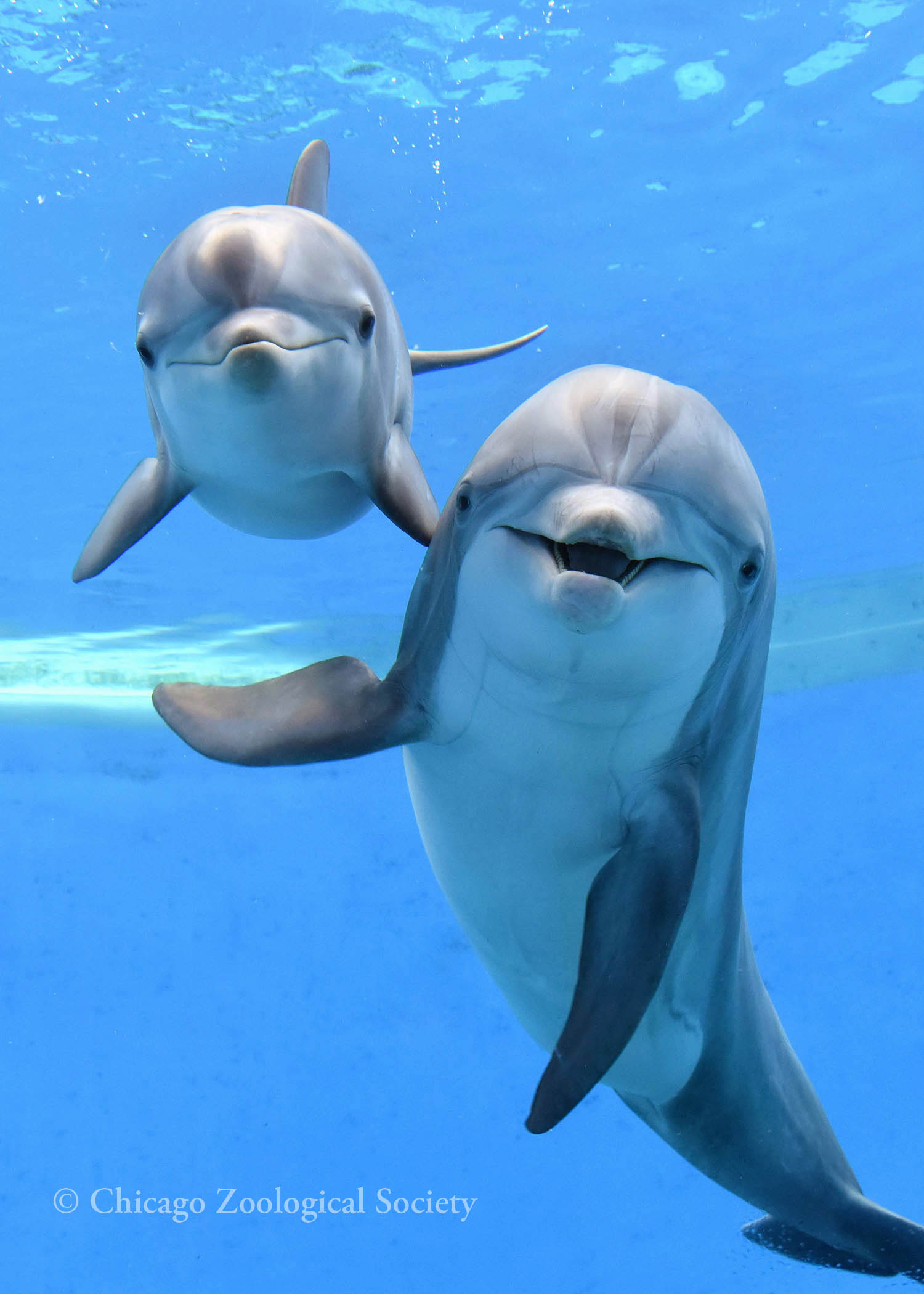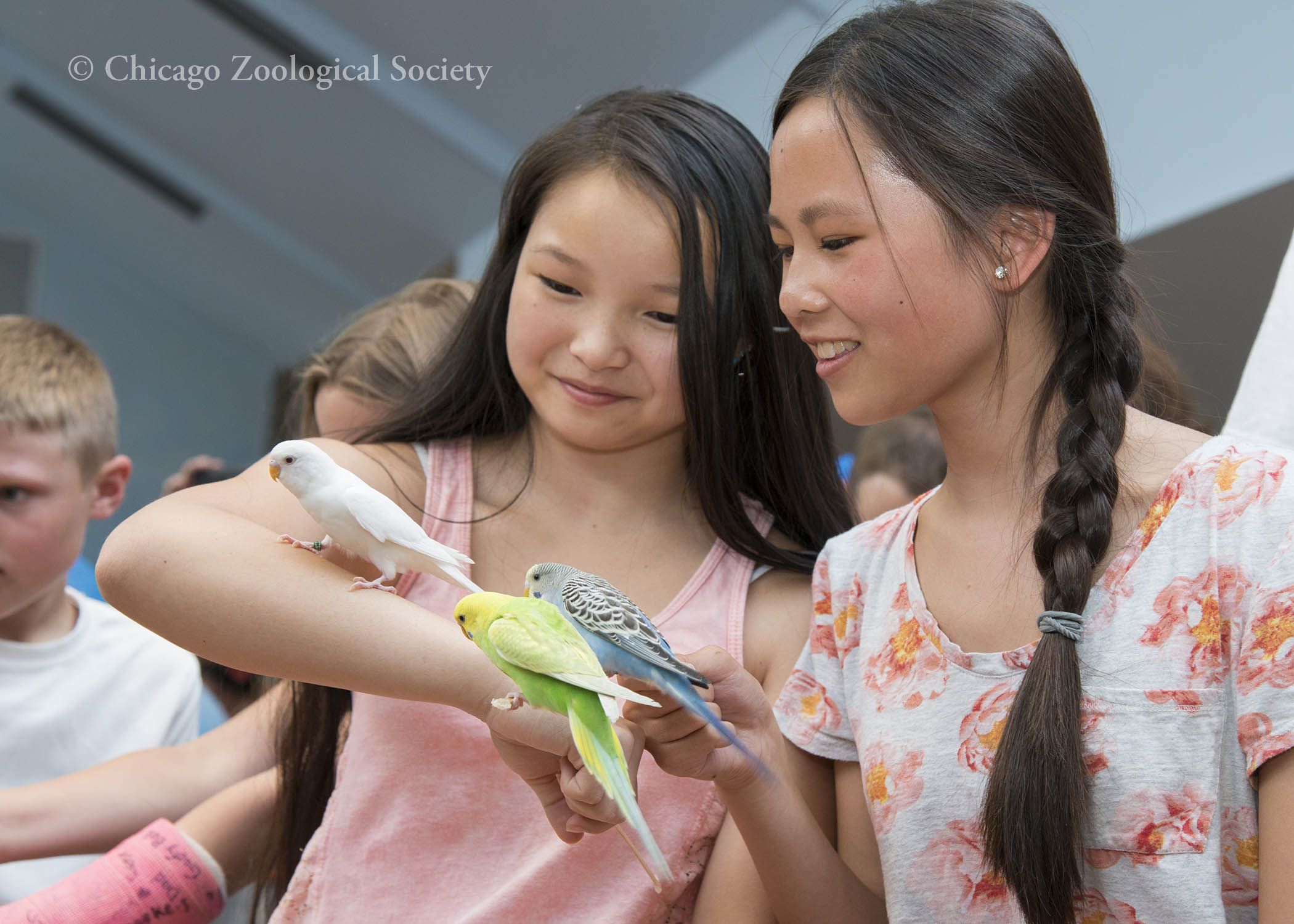Brookfield Zoo, considered among the best in the U.S., hosts 2.3 million guests annually and has stayed true to its mission of “inspiring conservation leadership by connecting people with wildlife and nature” since its founding in 1919. Not only do they offer a wide variety of education opportunities — ranging from preschool camps all the way to masters programs to inspire future generations of scientists, but as a member of the Chicago Zoological Society, Brookfield Zoo is on the forefront of animal research and conservation. Following are just a few examples of how their work is protecting the animal kingdom.

Cross-Fostering with the Wild
Brookfield Zoo introduces millions of visitors to a variety of endangered animals housed at the zoo, and is also actively involved in protecting these species in the wild. One important way to assist endangered species is to promote genetic diversity through a cross-fostering program. Brookfield Zoo has been an active partner in the U.S. Fish and Wildlife Service’s (USFWS) Mexican Gray Wolf Recovery Program since 2003. In cross-fostering, a pair of zoo-born pups and a pair of wild-born pups are swapped, thereby increasing the genetic diversity in the wild population. “We are extremely proud to be able to contribute to this important conservation effort for the Mexican gray wolf population,” explains Bill Zeigler, senior vice president of animal programs. The program has seen great success as the mother wolves care for their litters, including their newly adopted pups, and the gene pool of the wild wolves eventually grows as the zoo-born wolves breed within the population.
Sarasota Dolphin Research Program
A spectacular dolphin show may be seen daily at the zoo in Illinois, but the real show is underway in Sarasota, FL, where Brookfield Zoo and the Chicago Zoological Society run the Sarasota Dolphin Research Program. This program is the longest running of its kind in the world and entirely unique in that scientists are able to study and know specific animals within a population through their pioneered use of systematic long-term dolphin surveys. These surveys were especially important after the gulf oil spill in 2010 when researchers were able to quickly assess the severity of the impact on area dolphins.

Internationally Recognized Zoo
As one of the world’s most dedicated zoological institutions, Brookfield Zoo was among the first recipients of the American Humane Association’s global Humane Conservation certification in 2016. Dedicated to the welfare of animals living in zoos and aquariums, the Humane Conservation program sets high evidence-based animal welfare standards, examining animal health, housing, social interactions, stimulation, environmental safety and management of medical emergencies, among others. Brookfield Zoo was one of four global institutions to first receive this certificate, along with Chicago’s Shedd Aquarium, also a member of the Chicago Zoological Society.
Inspiring Conservation Leadership
Brookfield Zoo continues to make an important impact on animal conservation efforts throughout the world. Their tireless work with endangered and threatened species is commendable, as are their efforts to educate their many visitors on the importance of protecting the natural world. “Our mission is to inspire conservation leadership by connecting people with wildlife and nature,” explains Stuart D. Strahl, Ph.D., Chicago Zoological Society president and CEO, “and we hope that after guests visit they will make conservation-minded decisions in their everyday lives.”

